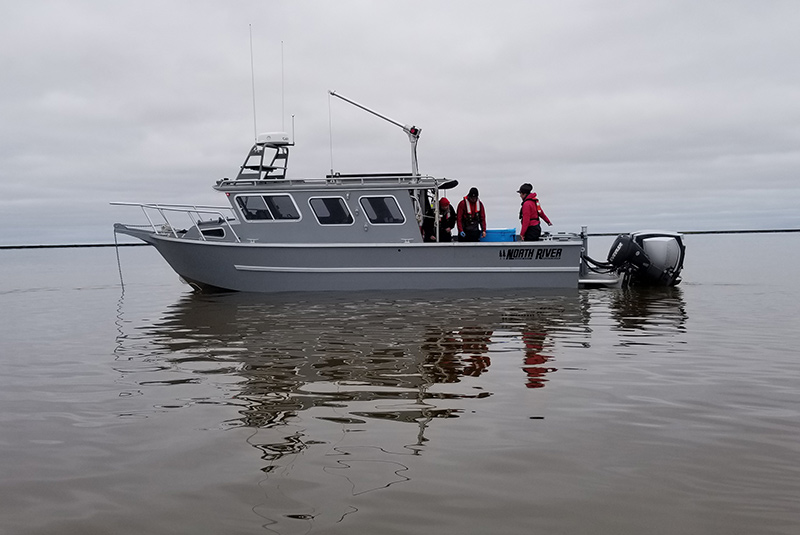UTEP Awarded $551K Grant to Research Effects of Solar-Induced Fluorescence to Monitor Arctic Vegetation
Last Updated on October 21, 2019 at 12:00 AM
Originally published October 21, 2019
By UC Staff
UTEP Communications
The University of Texas at El Paso Department of Biological Sciences was awarded a $551,000 grant from the National Aeronautics and Space Administration through the University of Maryland, Baltimore County Biological Sciences to research the relationship between solar-induced fluorescence (SIF) and vegetation photosynthetic capacity. Findings could aid scientists in predicting the future response of arctic vegetation to climate change.

Leading the study is Craig Tweedie, Ph.D., professor of biological sciences and director of UTEP’s environmental science and engineering program. Tweedie’s lab focuses on evaluating and monitoring ecosystem changes in the Arctic. This research project will examine if and how SIF can be used to monitor the photosynthesis of Arctic vegetation from aircraft and satellite-based sampling platforms. SIF is produced at specific wavelengths of light when plants photosynthesize has proven to be one of the best methods for determining plant health, growth and yield in croplands and some other ecosystems.
“This is the first time that such a study has been performed in the Arctic,” Tweedie said. “As such, the study has implications for the validation and verification of satellite and other remote sensing products, parameterization of ecosystem models, advancing knowledge of climate change impacts, and ecosystem management and policy development.”
The research is being conducted in collaboration with Fred Huemmrich, Ph.D., at NASA’s Goddard Space Flight Center in Maryland and in coordination with NASA’s Arctic and Boreal Vulnerability Experiment (ABoVE).
“NASA-ABoVE is a large and highly coordinated NASA field campaign that is developing and testing next-generation approaches and technologies for monitoring Arctic and Boreal ecosystems, which play key roles in regulating key components of the Earth System such as the climate, hydrology, and cryosphere,” Tweedie said.
The arctic is experiencing amongst the greatest changes in climate on Earth.
“This research not only helps to advance understanding of this system and how we can improve our monitoring of change, but also puts UTEP students at the front line of climate change impact research,” Tweedie said.
This project builds on a legacy of UTEP research effort in the Arctic that is funded by NASA, NSF, NOAA, DHS, and BOEM.
“A lot of people don’t realize that UTEP has a team of six faculty members who conduct research in the Arctic – one of the largest groups in a given university department outside of Alaska,” Tweedie said.
To learn more about Tweedie’s work, visit https://www.utep.edu/chs/news/chs-staff-member-participates-in-alaskan-research-trip.html